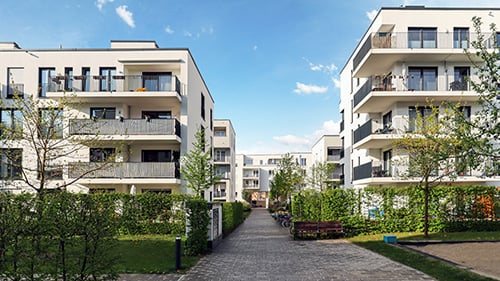Navigating the Complex Landscape of Regulatory Standards for Cyber Security in Multi-Unit Units to Guarantee Occupant Security and Information Protection
Wiki Article
In the current world, many individuals reside in multi-dwelling buildings, including flat buildings and condominiums. Such locations frequently utilize common networks for internet and other services. Although this setup can be convenient, it also raises significant concerns about system safety and regulatory standards. Guaranteeing the safety of tenants and protecting their data is essential. This piece will explore the intricate landscape of compliance standards for system safety in multi-unit units, focusing on how these standards help keep residents safe and protected.
A of the key regulatory standards that pertain to system security is the EU Data Privacy Act (GDPR). This law is designed to protect personal data and privacy for individuals inside the EU Union. While it primarily applies to businesses functioning in the EU, its principles can influence procedures in different regions as also. For multi-unit units, complying to GDPR means implementing robust data safeguarding protocols. This includes ensuring that tenants' individual information is gathered, kept, and processed securely. By adhering to these guidelines, property managers can help build confidence with tenants and guarantee their information is safe from illicit access.

A further important guideline is the Health Insurance Portability and Accountability Law (HIPAA), which protects confidential healthcare information in the healthcare industry. In multi-unit units, especially those that offer medical assistance or have residents with specific health requirements, adherence with HIPAA is essential. This requires that any medical information gathered from tenants must be maintained private and secure. Property administrators must make sure that their system systems are designed to avoid data breaches and illicit intrusion. By doing so, they not only adhere with legal requirements but also promote a secure residential space for all tenants.
Alongside GDPR and HIPAA, the Payment Card Sector Information Protection Standard (PCI DSS) is another critical regulatory guideline. This guideline is especially relevant for multi-unit buildings that accept credit card payments for lease or amenities. PCI DSS specifies protection measures that must be in place to protect customer data. This entails encrypting confidential data and regularly monitoring system safety. By adhering to PCI DSS standards, property managers can reduce the risk of data leaks and safeguard tenants' monetary information, which is crucial for maintaining their confidence and security.
Ultimately, it is crucial for multi-dwelling buildings to stay updated on local and federal regulations regarding network safety. Regulations and guidelines can change, and remaining aware is essential for adherence. Building administrators should frequently assess their safety click this link here now policies and practices to make sure they comply with current requirements. This preventive approach not only helps in upholding compliance but also improves the overall safety of the system. By focusing on resident security and data protection, multi-dwelling units can create a safe residential space that encourages confidence and peace of mind among residents.
In conclusion, navigating the complex landscape of regulatory standards for system safety in multi-unit units is essential for ensuring resident security and data safeguarding. By understanding and applying standards like GDPR, HIPAA, and PCI DSS, property managers can create a safe space for their tenants. Remaining updated about regional laws and frequently assessing safety protocols further improves this dedication to safety. In the end, a robust emphasis on adherence not only safeguards tenants but also fosters a sense of belonging and confidence among multi-unit buildings.